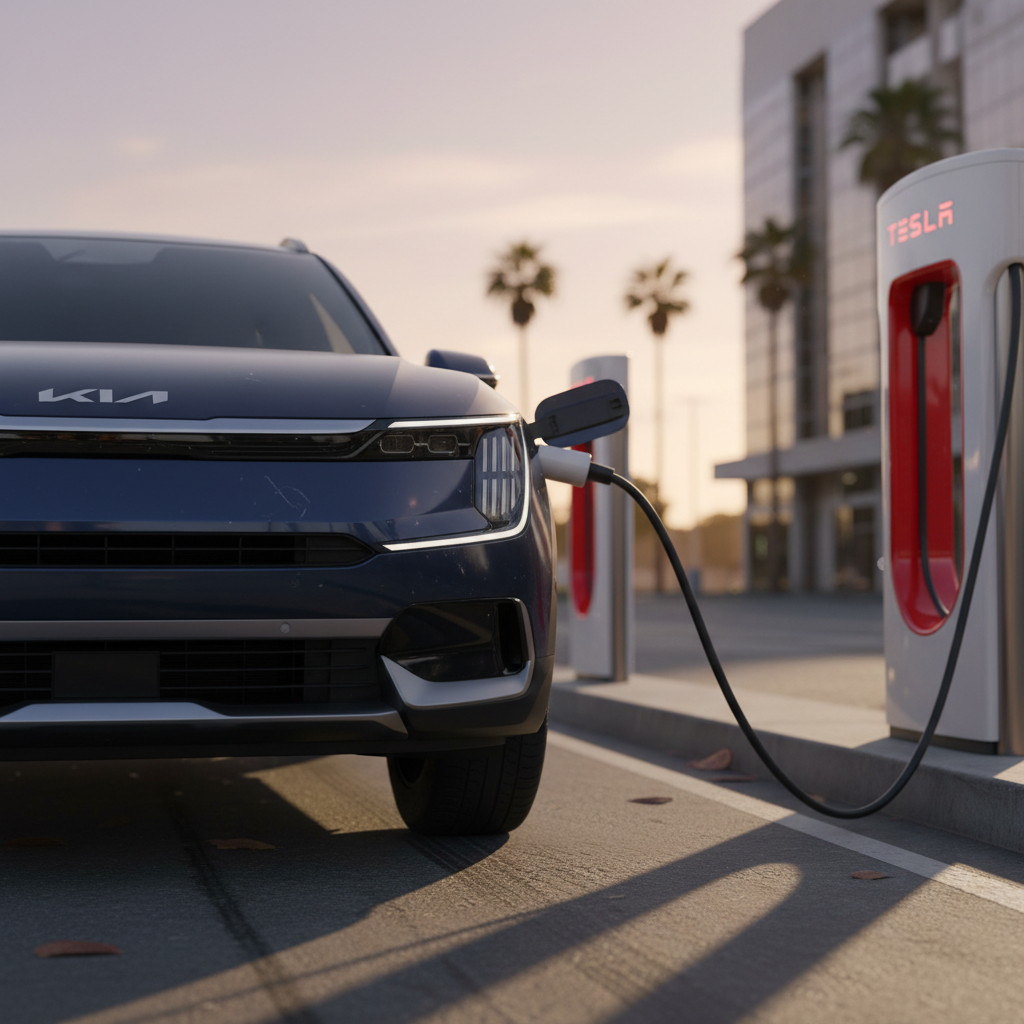When you search for “used auto batteries for sale”, you’re usually in one of two moods: frugal, or desperate. The car won’t start, money’s tight, and the idea of dropping $200+ on a new battery feels like highway robbery. The good news: a used or refurbished battery can be a smart move, if you know how to separate the workhorses from the walking dead.
Quick take
Why people hunt for used auto batteries
Let’s be honest: very few people wake up excited to shop for batteries. You go looking for used auto batteries for sale because something failed, often suddenly, and you want the cheapest path back to mobility. On the other side of the counter, recyclers and dismantlers are sitting on mountains of batteries, from humble 12‑volt units to retired EV packs, and they’d love to monetize them before sending everything to the shredder.
- You want a temporary battery just to sell or trade a car.
- You’re fixing a budget beater or project car and every dollar matters.
- You’re building off‑grid power or DIY storage and don’t need perfect performance.
- You’re environmentally minded and hate throwing away something with life left in it.
Not all “used” means the same thing
Types of used auto batteries for sale
Four main categories you’ll see
From $40 junkyard specials to five‑figure EV packs
Used 12V lead‑acid
The classic car battery. Pulled from a vehicle, maybe tested, maybe not. Cheapest and most common.
Refurbished 12V
Cleaned, charged, load‑tested; sometimes desulfated. Sold by shops that specialize in batteries, usually with a short warranty.
Hybrid packs
NiMH or lithium packs from hybrids like Prius and Camry. Often rebuilt with mixed‑age modules; quality varies wildly.
Second‑life EV packs
Retired lithium‑ion packs from full EVs, repurposed for stationary storage or, in rare cases, track toys and conversions.
For most drivers just trying to get their car started, the first two categories, used and refurbished 12‑volt batteries, are the relevant ones. Hybrid and EV packs are a different league: high voltage, high energy, and high risk if you don’t know exactly what you’re doing.
Pros and cons of buying used batteries
Upsides
- Lower upfront cost: Often 30–70% less than a comparable new battery.
- Short‑term fix: Perfect if you just need a few months out of an old car you plan to sell or trade.
- Environmental win: Extends the useful life of a battery before it’s recycled.
- DIY flexibility: For off‑grid and hobby projects, cosmetic flaws don’t matter.
Downsides
- Unknown history: Abuse, deep discharges, and heat damage don’t show on the case.
- Shorter lifespan: Even a good used battery is starting halfway through its life.
- Weak or no warranty: Commonly 30–90 days, sometimes “no returns.”
- Safety risk: Damaged cases, leaking acid, or mistreated lithium cells can be dangerous.
When used makes sense
How to evaluate a used 12V car battery
If you’re going to gamble on a used battery, at least count the cards. Here’s how to evaluate one like a pro instead of buying whichever hulk looks the least crusty.

Used battery quick‑check numbers
Seven‑step inspection before you hand over cash
1. Check the date code
Most batteries have a sticker or stamp: a letter for month, number for year (e.g., C3 = March 2023). Anything older than 4–5 years is a hard pass for daily‑driver duty.
2. Inspect the case
Look for bulging sides, cracks, wet spots, or white fuzzy corrosion around posts. Any physical damage is a walk‑away moment.
3. Verify the right spec
Match cold‑cranking amps (CCA) and group size to your owner’s manual. Bigger isn’t always better if it doesn’t physically fit the tray or clamps.
4. Measure open‑circuit voltage
With a simple multimeter, you should see at least 12.4 volts after the battery has been at rest. Anything below that is already starting life in a hole.
5. Ask for a load test
A proper shop can put the battery under a load equal to half its CCA rating for 10–15 seconds. Voltage should stay above about 9.6 volts and recover quickly.
6. Confirm the warranty
Even 30 days is meaningful; it tells you the seller is willing to stand behind the test sheet. Get the terms in writing on the receipt.
7. Check return and core policies
Make sure you understand whether you’ll pay a core charge and whether your old dead battery is still worth anything as a trade‑in.
Refurbished beats “mystery meat”
Where to find used auto batteries for sale
Used batteries are everywhere once you know where to look. The trick is choosing a source that matches your risk tolerance.
Common sources for used auto batteries
How the usual suspects stack up on price, testing, and risk.
| Source | Typical Price | Testing Quality | Warranty | Risk Level |
|---|---|---|---|---|
| Auto recyclers / junkyards | $20–$60 | Rarely tested | None to 30 days | High |
| Dedicated battery shops | $50–$120 | Load‑tested, often reconditioned | 30–180 days | Medium |
| Big‑box parts retailers (refurb units) | $80–$150 | Professionally tested | 30–90 days | Medium |
| Online marketplaces (FB, Craigslist, etc.) | $20–$100 | Unknown | Often none | Very high |
| EV dismantlers / specialty shops | Varies widely | Professional diagnostics on packs | 30–365 days | Medium–high |
If the listing sounds too good to be true, assume it’s untested and priced accordingly.
Avoid curbside “free battery” treasures
Pricing: what a used auto battery should cost
New lead‑acid batteries for mainstream cars in the U.S. commonly run $130–$250 installed, more for AGM or start‑stop systems. A used or refurbished battery has to be meaningfully cheaper than that to make sense, because you’re taking on more risk and less life.
- Junkyard pulls: often in the $20–$60 range, sometimes with a token 7–30‑day exchange.
- Refurbished 12‑volt at a battery shop: often $60–$120 with testing and a short warranty.
- Hybrid modules or partial packs: a few hundred dollars and up, depending on brand and age.
- Second‑life EV modules: priced per kWh and by condition for stationary storage projects, not casual DIY car fixes.
The 50% rule of thumb
Safety and legal considerations
Batteries are not just heavy bricks. They’re reservoirs of stored energy and corrosive chemicals, and sometimes flammable electrolytes. Mishandled, they will bite.
- Always transport upright and secured so the battery can’t tip or slide.
- Wear eye protection and gloves around lead‑acid batteries, splashing acid is no joke.
- Never use a visibly swollen, cracked, or leaking battery, even “just for now.”
- Don’t weld, grind, or smoke near batteries, hydrogen gas during charging is explosive.
- Dispose of dead batteries through a proper recycling program, not in household trash.
High‑voltage packs are not a weekend science fair
Second-life EV batteries: a different animal
While used 12‑volt car batteries are a street‑corner hustle, second‑life EV batteries are becoming big business. As of 2025, analysts estimate the global second‑life EV battery market at roughly a billion‑plus dollars in revenue, with projections in the tens of billions by the early 2030s as millions of EVs age out of their first life.

These packs often come out of service when they’ve dropped to 70–80% of their original capacity, no longer ideal for long‑range driving, but perfect for gentler duties like home energy storage, microgrids, or buffering fast‑charging stations. Companies are building entire product lines around this idea, turning retired EV packs into stationary storage systems for homes, businesses, and even data centers.
Why you rarely bolt a used EV pack into another car
How Recharged thinks about battery health
At Recharged, batteries aren’t an afterthought; they’re the main event. Every used EV we list comes with a Recharged Score Report that includes verified battery health, not just guesswork from a dashboard bar graph.
- Advanced diagnostics to estimate remaining usable capacity and balance across modules.
- Data‑driven fair‑market pricing that reflects real battery health, not just model year and mileage.
- Transparent reporting so you understand how the pack has aged and what to expect.
- EV‑specialist support to answer the “how long will this battery last me?” question with more than a shrug.
Buying the whole car, not just the battery
Checklist before you buy any used battery
The universal used‑battery buyer’s checklist
Confirm the exact application
Is this for a daily driver, a flip, or a stationary project? Your risk tolerance and required lifespan are different for each.
Price against a quality new battery
Get a quote for a reputable new battery. If the used option doesn’t save you at least 30–50% for 12‑volt, or come with a compelling warranty, reconsider.
Demand real testing, not vibes
Ask what tests were performed, see the numbers if possible, and have the seller explain them. “It held a charge” is not a test.
Read the warranty fine print
Is it replacement only? Pro‑rated? Store credit? How long? A clear, written warranty is worth more than a verbal promise in a parking lot.
Factor in installation
High‑voltage packs and some modern 12‑volt systems may need dealer‑level tools or programming. Budget for professional labor if needed.
Plan for end‑of‑life
Know how you’ll recycle the battery when it finally dies. Parts stores, recyclers, and municipalities often take cores and may even pay you for them.
FAQ: used auto batteries for sale
Frequently asked questions
Bottom line: when used batteries make sense
Used auto batteries occupy a strange little corner of the car world: part salvage, part sustainability play, part last‑ditch rescue mission. If you’re clear about what you need, cheap mobility for an old car, a bridge solution while you save for better, or raw material for a project, and you insist on real testing and a written warranty, a used or refurbished 12‑volt battery can be a perfectly rational choice.
Where it all goes sideways is when you treat a tired battery like a brand‑new one, or treat a high‑voltage EV pack like a weekend science project. For most people, the smartest long‑term move is still a quality new battery in an otherwise healthy car, or a used EV with verified battery health from a seller who’s done the hard diagnostic work for you.



